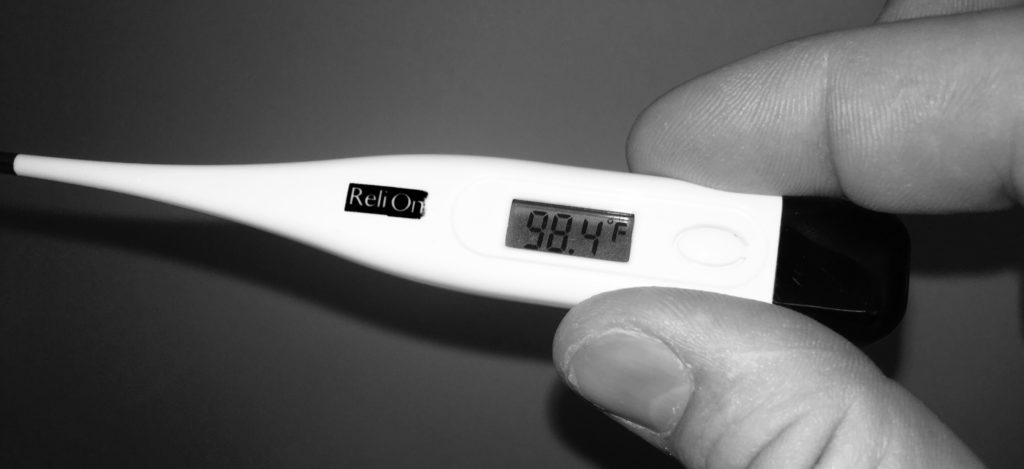Are you healthily sick?
“What do you mean?,” you might ask. “How can you be sick in a healthy way?” As human beings who live in a world that is soaking in the depravity of sin, the effect of the Fall is all around us and within us. I used to think that eventually I would “arrive” and I would be completely healthy at some point. I would look at certain people in my life, where everything looked good in their lives and I would think, “Maybe someday I will be able to be like them.”
However, the longer I live, the more I realize that even the people who came from “good” childhoods and seem like they have it all together are broken. Every single one of us has fractures in our heart as a result of own sin and being sinned against by others. So every one of us is “sick.”
The good news is that we have a God who can and does bring healing to our broken hearts, but, until we get to Heaven, we will always have fractures in our hearts that need God’s healing. Is there a healthy way to deal with our brokenness? What does it look like to be healthy in the midst of our sickness? I would like to share four principles of being healthily sick.
Let me be clear. These four characteristics are not “Nathan Champneys’s four steps to spiritual success.” They really aren’t steps, but they are all simultaneously part of the healing process. In my own life, I feel like I am constantly going deeper into all of these. None of us ever “arrives.” So life becomes a process of working through these items. Don’t read these steps and try to place yourself into one or another. You will focus on these in different measures as you go deeper and deeper into allowing God to heal your heart. As we embrace these four principles, even though we are still “sick” because of our sin nature, we are living in a healthy way as Jesus continually brings healing to our hearts.
- Embrace the truth that you are accepted and loved exactly the way you are. God is not surprised by the fractures in your heart. He loves you right now, even with all your problems. There is nothing you can do to change that fact. This is such a hard truth to internalize, and it’s one that we have to keep relearning. I find it helpful to verbalize the truth to myself in prayer. I pray, “God, I thank You for being a good Father and completely accepting me. I thank You for loving me in my brokenness.”
- Own your brokenness. It has been said that the first step toward recovery is admitting that you have a problem. This really isn’t the first step; it’s the second. Until we understand how loved we are by God, we tend to feel insecure about our weaknesses and thus feel a need to live in denial about them. You are broken. You are a piece of work. But you are okay! You are loved!
- Intentionally discover your brokenness. The next part of being healthy in your brokenness is intentionally seeking out the areas that need healing. Psalm 139:23-24 says, “Search me, O God, and know my heart; test me and know my anxious thoughts. Point out anything in me that offends You.” David asks God to point out the offensive areas of his heart. David is not afraid to acknowledge his faults. Instead, he is actively working with God to discover the broken areas.
- Ask God to heal you. David ends Psalm 139 with this line, “Lead me along the path of everlasting life.” David was asking God to help him thrive in his relationship. The reality about our God is that He is a really, really good Father. The only way that real relationship can truly happen is for there to be freedom for both people in the relationship to have free will to participate. Therefore, God will never violate our free will. To do so would make us robots and make any relationship with us fake. If we don’t invite God into the process of healing our hearts, He doesn’t force it on us. But he has promised that as we confess our sin, He is faithful and just to forgive us and “cleanse us from all unrighteousness.” As we choose to bring our sickness to Him, He is more than willing to bring healing to us.
Views – 235

 Follow
Follow
Yes, we are all broken! What really scares me is that we can sometimes see serious and glaring areas of brokenness in others (like David’s tryst with Bathsheba, and the result year of pain he endured before being challenged by the Prophet Nathan and repenting) which they (or we) apparently cannot see in ourselves.
In other cases (probably most cases … and I think this is equally scary, if not more so) we are successful at “hiding” these areas of brokenness on the back stage of our lives.
God help us as we seek to hold one another accountable for lifting our brokenness up to the Cross, and stimulate each other to love and good deeds!